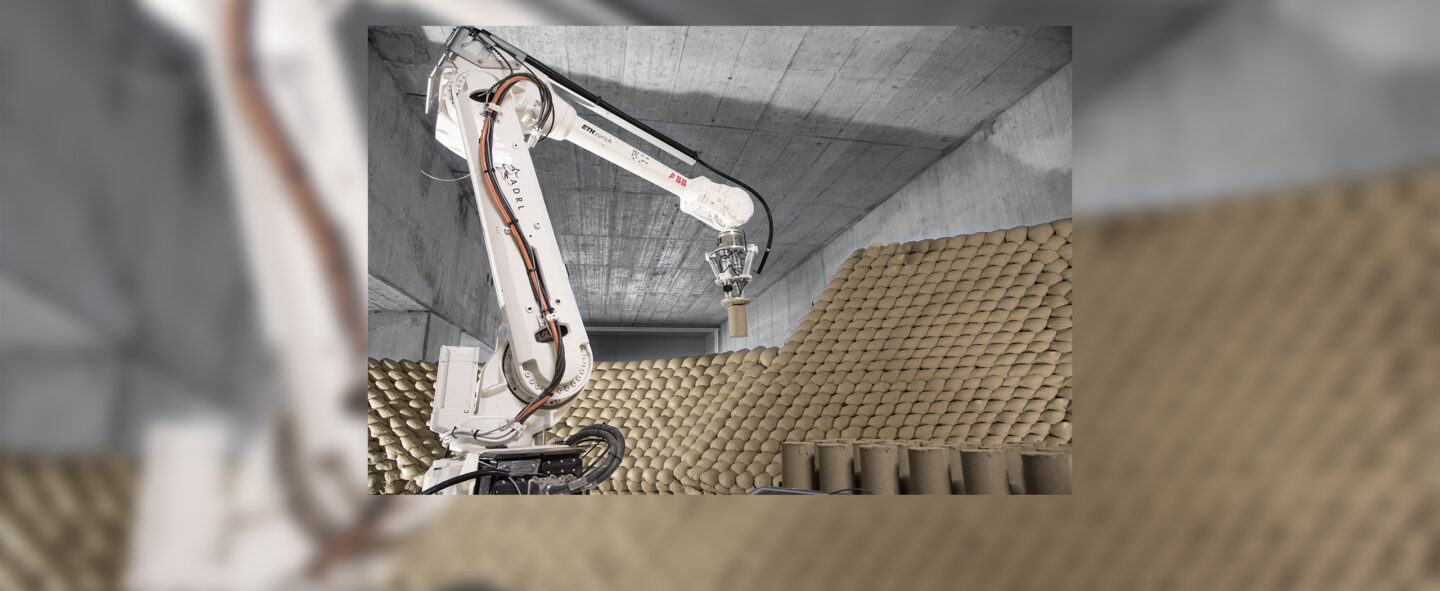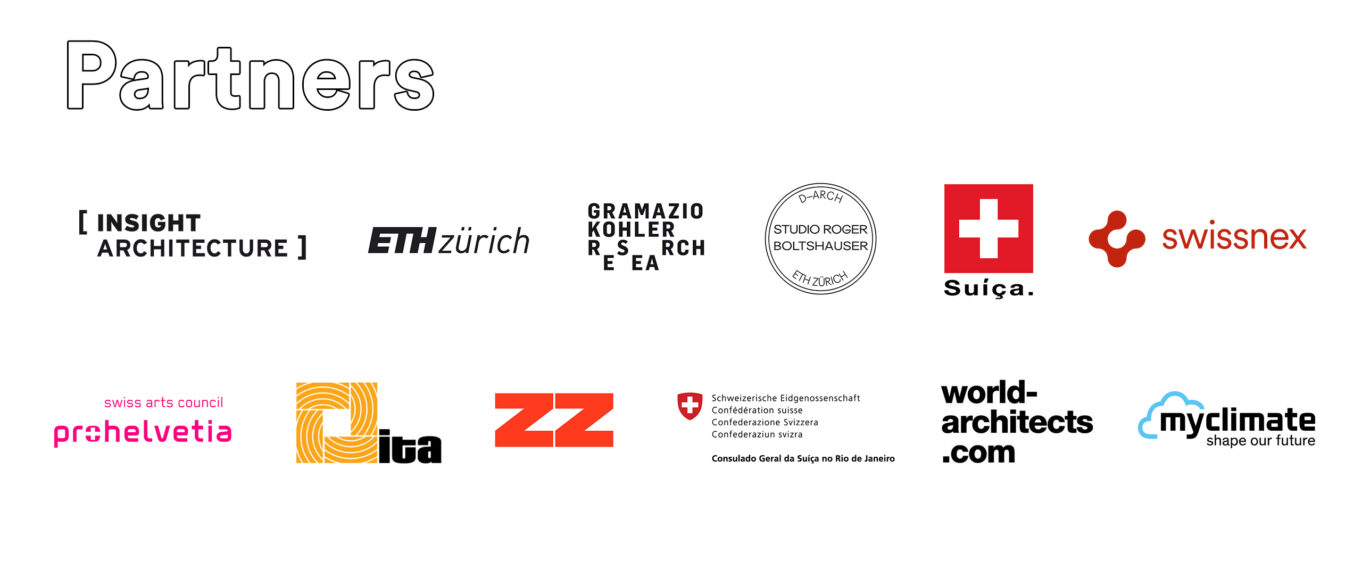
Giving new meaning and investigating new ways
The use of earth as a building material goes back to the earliest days of architecture. For thousands of years, houses and palaces were made and remade, leaving little trace on the landscape. It was only with the advent of industrialization processes that the material was replaced and discarded, and associated with primitive ways of building. Environmental concerns and the pressures of climate change have been rescuing the material, which is carbon-neutral, and it has returned to the center of architecture's interest. Today, architects and researchers, such as Swiss architects Roger Bolthauser and Fabio Gramazio from Gramazio Kohler Research, are giving new meaning and investigating new ways – more efficient and durable – to build with earth, through lexical and technological investigations.
Bolthauser and his students reinvent the technique of rammed earth in Kiln Tower (Torre-Forno), where prefabricated bricks are associated with tensioned bars. Digital fabrication is the subject of Gramazio Kohler’s research, in which a robotic arm is used to build a rotunda out of clay to serve as a music studio.
To explore these topics, Insight Architecture and Swissnex in Brazil invite Fabio Gramazio and Roger Boltshauser, both professors at the Swiss Federal Institute of Technology ETH Zurich to this webinar. They will present their work and discuss the challenges and opportunities they see in earthen architecture for the future of our cities. Pedro Rivera, architect and founder of Rua Arquiteto will moderate the conversation. The event will be held in English, with simultaneous translation to Portuguese. The webinar is part of the Future Now event, which investigates the use of sustainable materials and new construction techniques such as digital fabrication in architecture as part of the UIA 2021 Rio Congress calendar.
Participants
-
![]()
Bio
Fabio Gramazio
Architect, Gramazio & KohlerFabio Gramazio is an architect with multi-disciplinary interests ranging from computational design and robotic fabrication to material innovation. In 2000, he founded the architecture practice Gramazio & Kohler in conjunction with his partner Matthias Kohler, where numerous award-wining designs have been realized. Current projects include the design of the Empa NEST research platform, a future living and working laboratory for sustainable building construction. Opening also the world’s first architectural robotic laboratory at ETH Zurich, Gramazio & Kohler’s research has been formative in the field of digital architecture, setting precedence and de facto creating a new research field merging advanced architectural design and additive fabrication processes through the customized use of industrial robots. This ranges from 1:1 prototype installations to the design of robotically fabricated high-rises. His recent research is outlined and theoretically framed in the book The Robotic Touch: How Robots Change Architecture (Park Books, 2014). From 2017 to 2019, Fabio Gramazio was Director of Studies for Bachelor and Master Architecture.
-
![]()
Bio
Roger Boltshauser
Guest professor, ETH ZurichAfter his graduation from the ETH Zurich, Roger Boltshauser founded his office ‘Boltshauser Architekten AG’ in 1996 in Zurich. In addition to his practice, he was a research assistant at the Institute for the History and Theory of Architecture (gta) from 1996 to 1998 and a teaching assistant at the chair of Peter Märkli at ETH Zurich and EPFL Lausanne from 1997 and 1999. Between 2004 and 2010 he was engaged as a lecturer for design at the University of Applied Sciences Chur (HTW) and between 2005 and 2009 at the master degree course at Anhalt University of Applied Sciences (DIA) and Chur Institute of Architecture (CIA). From 2016 to 2017 he was a guest professor at EPFL Lausanne and from 2017 to 2018 at TU Munich. Since 2018 he is a guest professor at ETH Zurich.
-
![]()
Moderator
Pedro Rivera
ArchitectPedro Rivera is an architect and urbanist whose work flows between design and research, with concentration in the relations among architecture, art and urban inequality. He is a co-founder of Rua Arquitetos, in Rio de Janeiro and an Adjunct Assistant Professor at GSAPP Columbia University. From 2011 to 2017, he was director and curator at GSAPP’s Studio-X Rio, in charge of curating and organizing lectures, exhibitions and workshops, as well as researches such as Fight, Squat, Resist (2016) and Housing Project (2017), both on housing issues. His designs include the Rio 2016 Olympic Golf Course Clubhouse, art galleries and cultural spaces for NGOs in the favelas of Rio de Janeiro. Rivera had works exhibited at MoMA (New York, 2014), MAK (Wien, 2015), Carnegie Museum of Art (Pittsburgh, 2016), Het Nieuwe Instituut (Rotterdam, 2016) and MAM São Paulo (2017); as well as in the architecture biennials of Hong Kong/Shenzen (2014), Chicago (2015), Venice (2016) and São Paulo (2017). Rivera holds a masters degree in urbanism at the Federal University of Rio de Janeiro.



